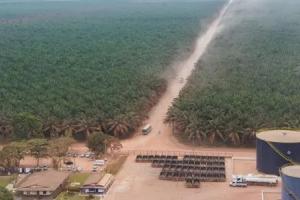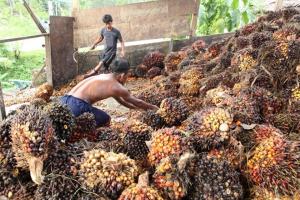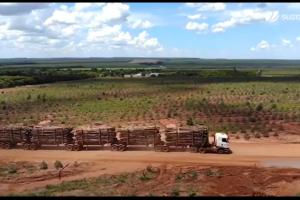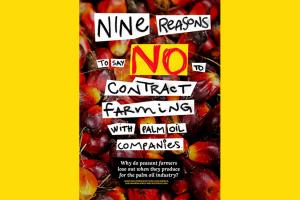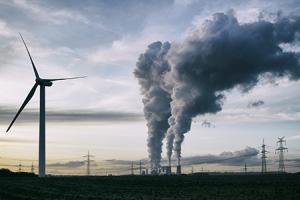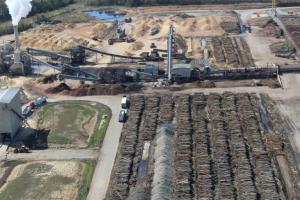As the devastating effects of climate change become more immediate and severe, corporate interests are promoting the use of unproven and potentially dangerous genetically engineered (GE) trees for climate mitigation schemes, including carbon offsetting and an emerging bioeconomy. A statement released by The Campaign to STOP GE Trees warns of the ecological and social harm of using GE trees, in “false solution” climate mitigation schemes.
Large-Scale Tree Plantations
Industrial tree plantations are large-scale, intensively managed, even-aged monocultures, involving vast areas of fertile land under the control of plantation companies. Management of plantations involves the use of huge amounts of water as well as agrochemicals—which harm humans, and plants and animals in the plantations and surrounding areas.
Other information
27 September 2021
Other information
27 September 2021
A recent publication form the WRM explains how contract farming with palm oil companies works, and why it is a serious threat to peasant farming and food sovereignty. The booklet looks at nine of the most common promises that companies make, and most importantly, the information they conceal behind each promise. The publication is available in English, Portuguese, French, Spanish and Bahasa Indonesia.
Other information
27 September 2021
A recent article from Mongabay warns on how the palm oil industry is expanding rapidly in the Brazilian Amazon. Oil palm coverage in northern Pará increased almost five-fold between 2010 and 2019. Studies have shown that the conversion of forests into oil palm plantations is a major problem. Most of Brazil’s palm oil production is controlled by eight companies.
Other information
27 September 2021
An academic article from Janina Puder exposes how the palm oil industry in Malaysia heavily relies on the cheap labour of migrant workers in order to keep palm oil profitable and globally competitive. Palm oil is often associated with social inequalities concerning land ownership, land use and access to land, but the exploitation of migrant workers is a further significant, albeit lesser-known, expression of social inequality that has been caused by industrial oil palm cultivation and the steady expansion of the palm oil sector in Malaysia since the 1960s.
Action alerts
12 September 2021
Statement Condemns Proposed Use of Genetically Engineered Trees in Wrong-Headed Climate Mitigation Schemes.
Multimedia
8 September 2021
We share this song, composed by the organizations Justicia Ambiental, Missão Tabita and AJOCME, from Mozambique.
Multimedia
17 August 2021
(Only available in Portuguese) Confira o vídeo com o posicionamento da comunidade contrária à passagem de caminhões de eucalipto.
Publications
19 July 2021
Why do peasant farmers lose out when they produce for the palm oil industry? A publication based on experiences from Latin America, sub-Saharan Africa and Southeast Asia.
Bulletin articles
9 July 2021
This bulletin aims to reflect on the extraction, violence and oppression related to the so-called energy ‘transition’ and its ‘green’ camouflage. A transition from what? And towards what?
Bulletin articles
9 July 2021
Balsa wood is an important input for windmills. Ecuador is the world’s largest exporter of this wood. The invasion of millions of wind turbines in China, Europe and the US means the extraction of metals to build them, as well as the brutal felling of balsa wood trees.
Bulletin articles
9 July 2021
Certification schemes seeking to legitimize activities that harm the environment and its people, with terms like “sustainable,” are a survival strategy for capitalism. In the framework of the energy transition, even the mining industry seeks to validate its unstoppable growth. A transition must happen, but in a fair and consensual way, not based on more green lies.
Other information
9 July 2021
In February 2021 more than 500 scientists and economists issued a letter urging to stop burning wood as a means of making energy in converted coal burning power plants and to end subsidies now driving the explosive demand for wood pellets. The burning of wood to produce electricity boomed since the United Nations categorized this energy source as ‘carbon neutral’, which enables governments and companies to burn wood instead of coal and not count the emissions in helping them meet their climate related targets.


